ESPRESSO and CARMENES discover two potentially habitable exo-Earths around a star near the Sun
Sunday, 18 December 2022 01:47 "Nature seems bent on showing us that Earth-like planets are very common. With these two we now know 7 in planetary systems quite near to the Sun" explains Alejandro Suarez Mascareno, an IAC researcher, who is the first author of the study accepted for publication in Astronomy and Astrophysics.
The newly discovered planets orbit the star GJ 1002, which is at a distance of less than 16 ligh
"Nature seems bent on showing us that Earth-like planets are very common. With these two we now know 7 in planetary systems quite near to the Sun" explains Alejandro Suarez Mascareno, an IAC researcher, who is the first author of the study accepted for publication in Astronomy and Astrophysics.
The newly discovered planets orbit the star GJ 1002, which is at a distance of less than 16 ligh Two exoplanets may be mostly water, Hubble and Spitzer find
Sunday, 18 December 2022 01:47 A team led by researchers at the University of Montreal has found evidence that two exoplanets orbiting a red dwarf star are "water worlds," where water makes up a large fraction of the entire planet. These worlds, located in a planetary system 218 light-years away in the constellation Lyra, are unlike any planet found in our solar system.
The team, led by Caroline Piaulet of the Trottier
A team led by researchers at the University of Montreal has found evidence that two exoplanets orbiting a red dwarf star are "water worlds," where water makes up a large fraction of the entire planet. These worlds, located in a planetary system 218 light-years away in the constellation Lyra, are unlike any planet found in our solar system.
The team, led by Caroline Piaulet of the Trottier New study confirms the light from outside our galaxy brighter than expected
Sunday, 18 December 2022 01:47 Scientists analyzed new measurements showing that the light emitted by stars outside our galaxy is two to three times brighter than the light from known populations of galaxies, challenging assumptions about the number and environment of stars are in the universe. Results of the study led by researchers at Rochester Institute of Technology have been posted to ArXiv and accepted for publication i
Scientists analyzed new measurements showing that the light emitted by stars outside our galaxy is two to three times brighter than the light from known populations of galaxies, challenging assumptions about the number and environment of stars are in the universe. Results of the study led by researchers at Rochester Institute of Technology have been posted to ArXiv and accepted for publication i Perseverance prepares to deposit Mars sample cache
Sunday, 18 December 2022 01:44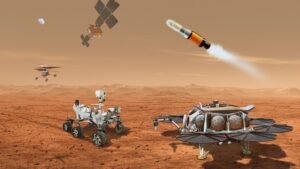
NASA’s Perseverance Mars rover will soon start depositing a cache of samples that it has collected since landing last year as part of efforts to eventually return those samples to Earth.
The post Perseverance prepares to deposit Mars sample cache appeared first on SpaceNews.
NASA postpones spacewalk to support Soyuz investigation
Saturday, 17 December 2022 13:20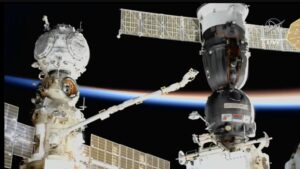
NASA is delaying a spacewalk at the International Space Station by two days to support the Russian investigation into a coolant leak on a Soyuz spacecraft docked there.
The post NASA postpones spacewalk to support Soyuz investigation appeared first on SpaceNews.
SpaceX launches first pair of O3b mPower satellites
Saturday, 17 December 2022 02:17
SpaceX launched the first O3b mPower satellites for SES’ next-generation broadband constellation Dec. 16, each promising 10 times more throughput than their predecessors in medium Earth orbit.
The post SpaceX launches first pair of O3b mPower satellites appeared first on SpaceNews.
VentureScope sets up accelerator for U.S. Air Force personnel
Friday, 16 December 2022 22:24
VentureScope, a consulting and venture investment firm that works with entrepreneurs, won a contract to establish to an internal U.S. Air Force accelerator.
The post VentureScope sets up accelerator for U.S. Air Force personnel appeared first on SpaceNews.
White House revamps membership of National Space Council advisory group
Friday, 16 December 2022 19:57
The White House announced the new membership of an advisory group of the National Space Council Dec. 16 with wholesale changes in the roster reflecting a new emphasis on climate change and workforce issues.
NASA's Perseverance rover to begin building Martian sample depot
Friday, 16 December 2022 18:48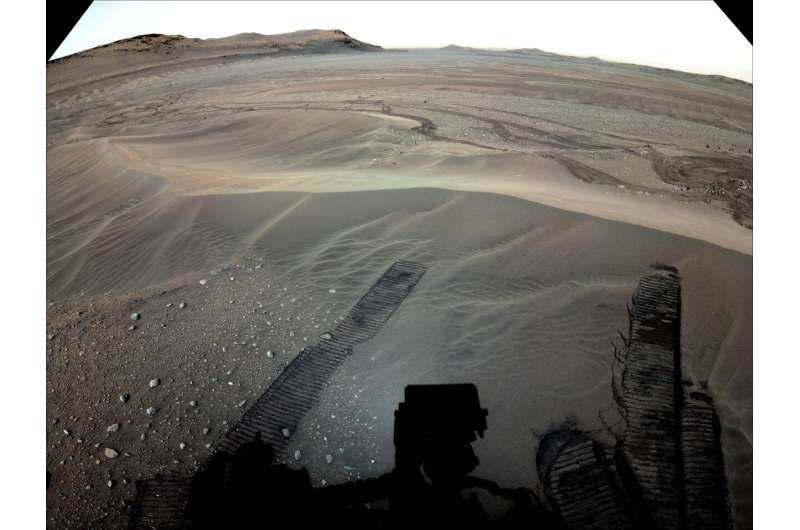
In the coming days, NASA's Perseverance rover is expected to begin building the first sample depot on another world. This will mark a crucial milestone in the NASA-ESA (European Space Agency) Mars Sample Return campaign, which aims to bring Mars samples to Earth for closer study.
The depot-building process starts when the rover drops one of its titanium sample tubes carrying a chalk-size core of rock from its belly 2.9 feet (88.8 centimeters) onto the ground at an area within Jezero Crater nicknamed "Three Forks.
Where are the best places to land humans on Mars?
Friday, 16 December 2022 16:53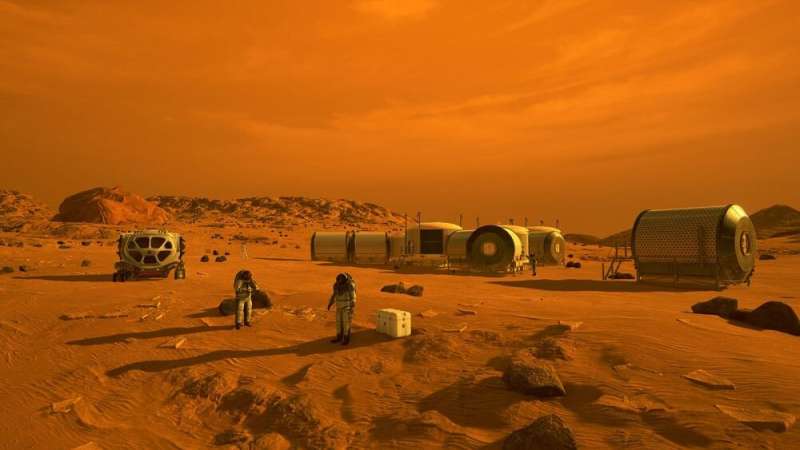
Want to go to Mars? Great, now all you need to do is plan a mission. Figure out where to land, what to bring, and how you're going to live there in the months (or years) between favorable return windows. All this will be determined by the availability of crucial resources you'll need to survive.
This is going to sound like a travel brochure, but the red planet offers so much to check out for a first human mission. There are canyons, plains, craters, volcanoes, and polar regions. So, where do you start first? It'll depend on what sort of mission you want to accomplish. A simple "plant boots and the flag" trip won't require a lot of infrastructure.
A more complex mission is going to need more infrastructure for habitats and science stations. Essentially, you'll land, build a habitat, explore the near neighborhood, establish a science outpost, and survive the radiation and environmental challenges of Mars.
Inflating a habitat to destruction to test its limits before going to orbit
Friday, 16 December 2022 16:51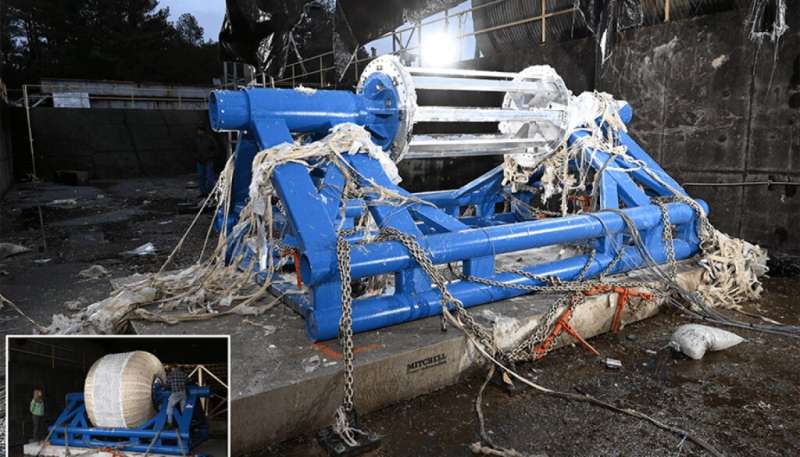
Normally, it would be a very bad day if your space station habitat module blew up. But it was all smiles and high-fives in mission control when Sierra Space's LIFE habitat was intentionally over-inflated until it popped spectacularly in an Ultimate Burst Pressure (UBP) test. The video below shows the moment of boom from several different viewpoints.
The test was performed on November 15, and due to the test's potentially explosive nature, the team placed a subscale test version of the inflatable module in the flame trench of the Saturn 1/1B test stand at Marshall Space Flight Center in Alabama, where NASA tested rockets for the Apollo program.
This is the second burst test this year for the LIFE (Large Integrated Flexible Environment) habitat.
Rubble pile asteroids might be the best places to build space habitats
Friday, 16 December 2022 16:49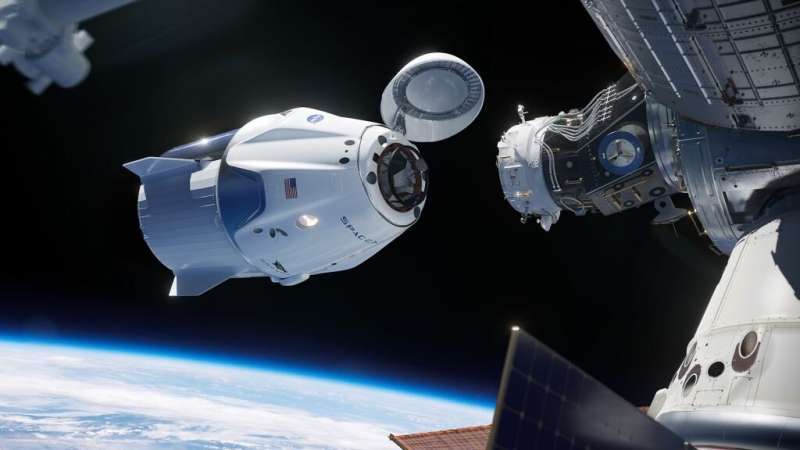
The stars call to us, as Carl Sagan once said. Given the human drive to explore our world and expand our reach, it is likely only a matter of time before we begin to build our homes in the solar system. The moon and Mars could be acceptable destinations, but nearby asteroids could also become homes, as a recent study shows.
The cold, weightless, radiation-filled dark of space poses a number of challenges to human habitation. We must be shielded from cosmic radiation and solar wind, and microgravity poses significant health hazards to the human body. This will force us to live under a layer of regolith or soil on the moon and Mars. Given the low gravity of these worlds, we might be better off living deep within small asteroids that we can spin up to create a healthy artificial weight.
Scientists testing future technology to extend solar energy measurements
Friday, 16 December 2022 16:24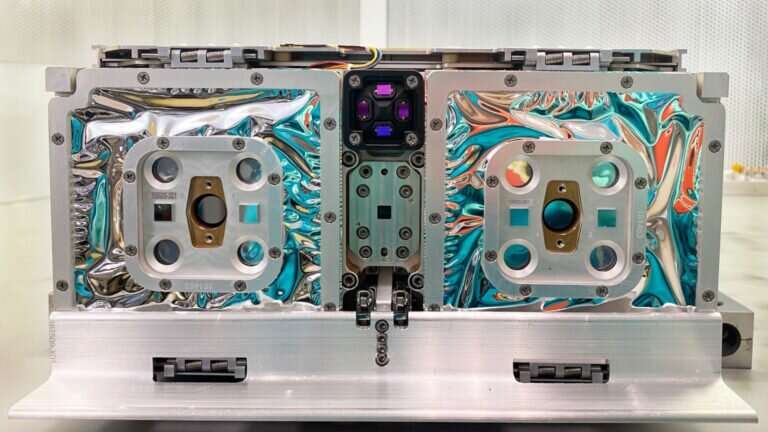
Since July 2022, a miniature satellite about the size of a shoebox has been orbiting Earth and monitoring how much solar energy reaches the atmosphere. Now, scientists are finalizing their analysis of the first five months of measurements it gathered while in orbit.
The sun is by far the largest source of energy to Earth, dwarfing the energy generated by Earth's core, and it plays a major role in global climate. Precise and accurate measurement of how much solar energy is absorbed by Earth—Total Solar Irradiance (TSI)—is crucial to our understanding of Earth's climate system.
The CubeSat, called the Compact Total Irradiance Monitor-Flight Demonstration, or CTIM-FD, is on a one-year mission to develop and test new technologies for measuring TSI.
CTIM-FD was designed and built by the Laboratory for Atmospheric and Space Physics (LASP) at the University of Colorado Boulder and the National Institute of Standards and Technology (NIST).
A key part of this mission is to directly compare the measurements of CTIM against its larger counterparts to demonstrate that it can perform measurements just as precisely and accurately.
Christmas comes early for Aeolus with improved laser performance
Friday, 16 December 2022 16:19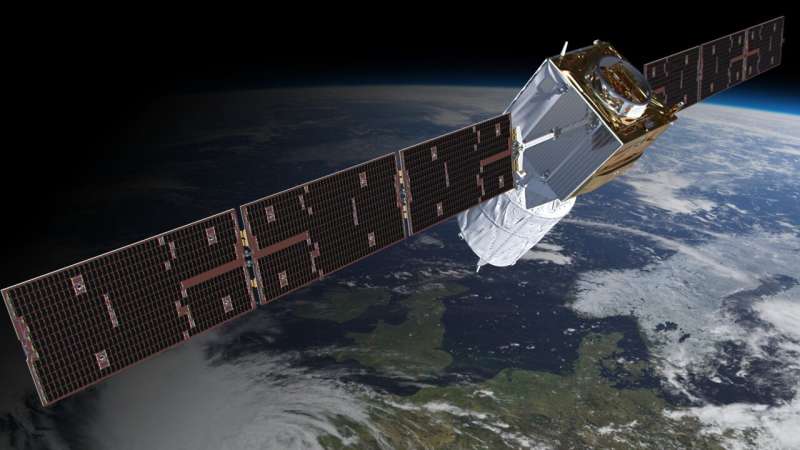
ESA's wind mission continues to shine as engineers have worked their Christmas magic. With a switch back to its original laser, Aeolus is now shining more than twice as brightly with its best ever performance—just in time for the holidays.
It's another remarkable success for ESA's fifth Earth Explorer. Launched in 2018 after many technical challenges, Aeolus pioneered what none had pioneered before—directly measuring global wind profiles from space using a laser.
ESA Highlights 2022
Friday, 16 December 2022 14:00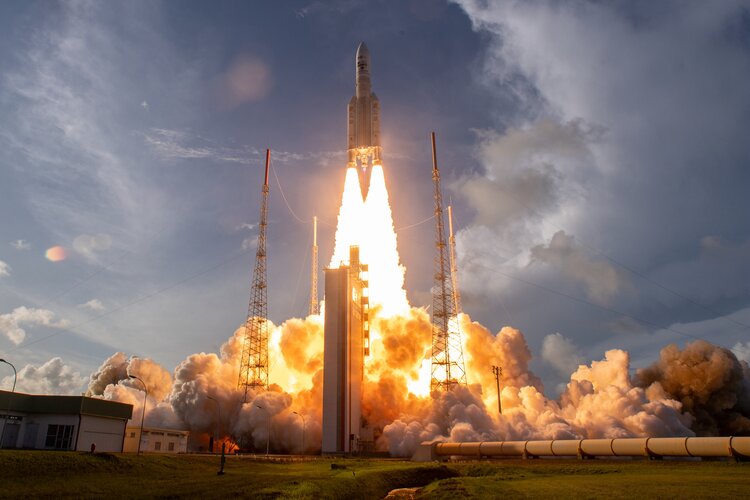 Video:
00:07:33
Video:
00:07:33
2022 was a year of many ‘firsts’ for space in Europe, seeing the first European female ISS commander, the launch of the first Vega-C rocket, Solar Orbiter’s first close encounter with our home star, the launch of the first Artemis mission working to bring humans back to the Moon, and first images from the James Webb Space Telescope.
Let’s take a look at the highlights and accomplishments of the European Space Agency during 2022.
